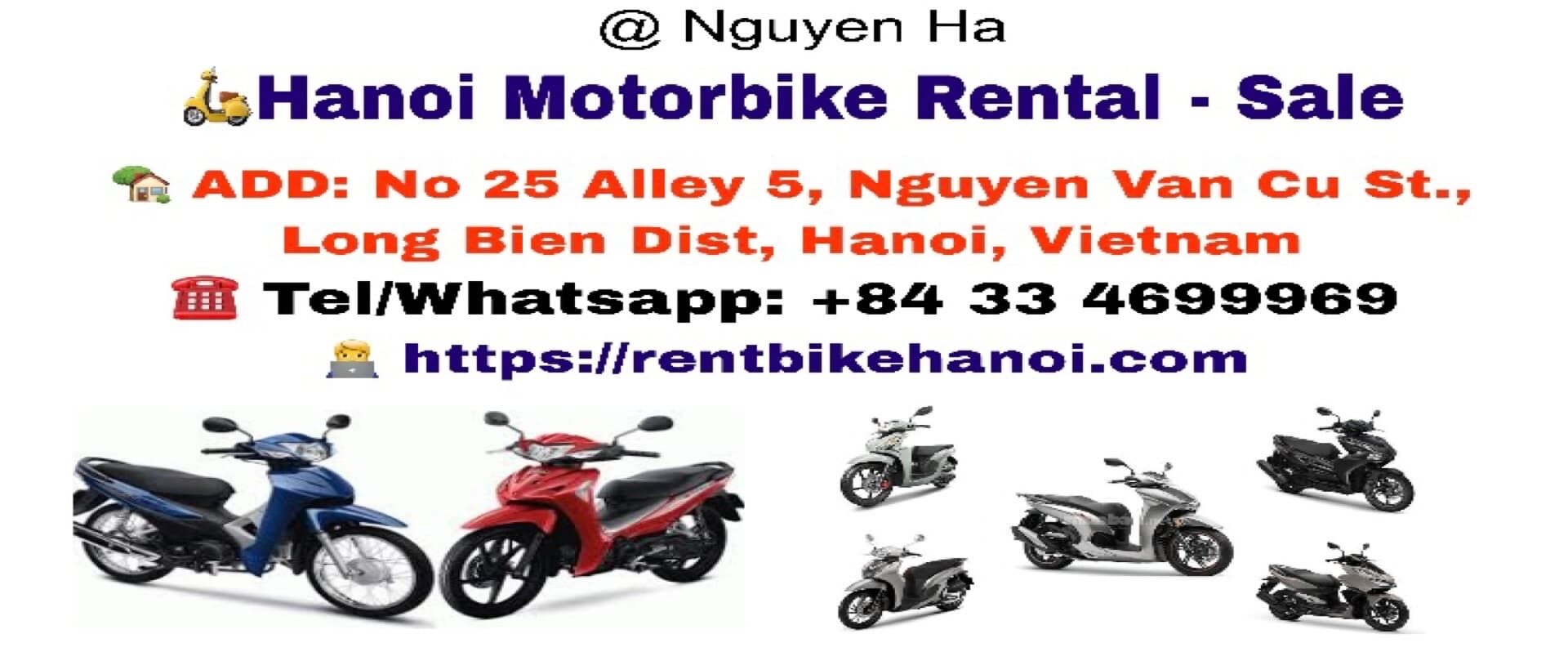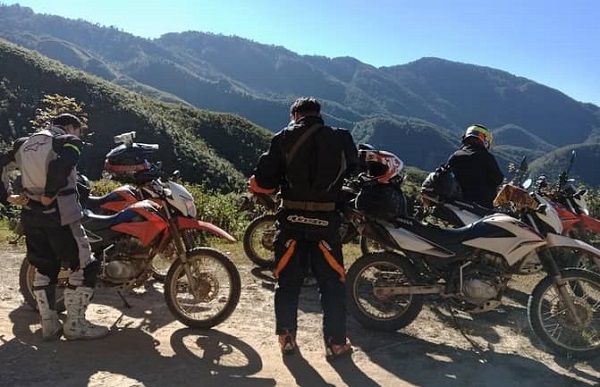Hanoi, Vietnam’s bustling capital, offers an exhilarating experience for travelers seeking authentic local transportation. Motorbike renting in Hanoi has become increasingly popular among tourists who want to explore the city’s hidden gems and navigate through its vibrant streets.
However, Hanoi’s traffic can be overwhelming for newcomers. The seemingly chaotic dance of motorbikes, cars, bicycles, and pedestrians requires skill, patience, and most importantly, safety awareness.
This comprehensive guide will equip you with essential safety tips for renting motorbikes in Hanoi and surviving the unique traffic dynamics of Vietnam’s capital city.
Understanding Hanoi Traffic Patterns
The Organized Chaos
Hanoi traffic operates on principles that might seem counterintuitive to Western visitors. What appears chaotic actually follows unwritten rules that locals understand instinctively.
Traffic flows like water, with vehicles weaving between each other in a continuous stream. Motorbike traffic in Hanoidominates the streets, with millions of scooters and motorcycles sharing narrow roads with cars, buses, and pedestrians.
Peak Traffic Hours
Understanding traffic patterns is crucial for safe motorbike riding in Hanoi:
Morning Rush (7:00 AM – 9:00 AM)
- Heavy congestion on major arteries
- School children and office workers create additional foot traffic
- Increased accident risk due to hurried commuters
Evening Rush (5:00 PM – 7:30 PM)
- Maximum traffic density
- Reduced visibility as daylight fades
- Higher stress levels among all road users
Weekend Traffic
- Different patterns with leisure travelers
- Tourist areas become more congested
- Shopping districts experience heavy traffic
Essential Pre-Rental Safety Preparations
Choosing the Right Rental Company
Not all Hanoi motorbike rental services maintain the same safety standards. Research reputable companies that prioritize:
- Regular motorcycle maintenance
- Quality helmets and safety equipment
- Comprehensive insurance coverage
- Clear rental agreements
- 24/7 emergency support
Documentation Requirements
Before renting a motorbike in Hanoi, ensure you have:
- Valid passport
- International driving permit (IDP)
- Credit card for security deposit
- Local contact information
- Emergency contact details
Motorcycle Inspection Checklist
Always perform a thorough inspection before accepting any rental motorcycle:
Engine and Mechanical Components
- Check engine oil levels
- Test brakes (front and rear)
- Inspect tire condition and pressure
- Verify horn functionality
- Test headlight and taillight operation
Safety Equipment
- Helmet condition and fit
- Mirror alignment and clarity
- Turn signal operation
- Emergency brake responsiveness
Fundamental Traffic Rules for Hanoi
Right-of-Way Principles
Hanoi motorcycle traffic follows specific hierarchy rules:
- Larger vehicles generally have right-of-way
- Continuous flow takes precedence over stopping
- Predictable movement is more important than speed
- Eye contact and hand signals communicate intentions
Speed Limits and Regulations
Understanding Vietnam traffic laws is essential:
- Urban speed limit: 50 km/h
- Residential areas: 30 km/h
- School zones: 20 km/h
- Alcohol tolerance: 0% (zero tolerance policy)
Prohibited Actions
Avoid these behaviors while riding motorcycles in Hanoi:
- Using mobile phones while riding
- Riding without proper helmet
- Carrying more than one passenger
- Blocking intersections
- Aggressive horn usage
Advanced Safety Techniques for Hanoi Streets
The Art of Positioning
Strategic lane positioning can significantly improve safety:
Center Lane Position
- Maintain visibility to other drivers
- Avoid car door zones
- Keep escape routes open
Left-Side Riding
- Stay visible to oncoming traffic
- Prepare for left turns safely
- Avoid parked vehicle hazards
Right-Side Positioning
- Use for right turns
- Exit strategy in heavy traffic
- Avoid pedestrian conflicts
Defensive Riding Strategies
Anticipate Traffic Behavior
Successful Hanoi motorbike navigation requires predicting other drivers’ actions:
- Watch for turning signals early
- Observe traffic flow patterns
- Identify aggressive drivers
- Monitor pedestrian movements
Maintain Safe Following Distances
In dense Vietnamese traffic, proper spacing prevents accidents:
- 3-second rule minimum
- Increase distance in wet conditions
- Allow extra space for larger vehicles
- Account for sudden stops
Weather-Specific Safety Measures
Rainy Season Precautions (May – October)
Hanoi’s tropical climate presents unique challenges:
- Reduced tire traction on wet roads
- Decreased visibility during storms
- Flooding in low-lying areas
- Increased accident rates
Safety Tips for Wet Conditions:
- Reduce speed by 25-30%
- Use both brakes gently
- Avoid painted road markings
- Increase following distance
- Wear waterproof gear
Hot Season Considerations (March – May)
Extreme heat affects both rider and machine:
- Dehydration risks
- Reduced concentration
- Tire pressure changes
- Engine overheating potential
Roundabout Techniques
Hanoi roundabouts can intimidate new riders. Master these techniques:
Entry Strategy
- Yield to traffic already in roundabout
- Signal your intentions clearly
- Maintain steady speed
- Choose appropriate lane early
Navigation Tips
- Stay in your lane
- Don’t stop inside the roundabout
- Exit smoothly without sudden movements
- Watch for pedestrians at exits
Intersection Safety
Complex intersections in Hanoi require special attention:
Traffic Light Intersections
- Stop behind the designated line
- Watch for red-light runners
- Prepare for aggressive starts
- Check cross-traffic before proceeding
Uncontrolled Intersections
- Slow down significantly
- Make eye contact with other drivers
- Use horn to announce presence
- Proceed with extreme caution
Night Riding Precautions
Evening motorcycle travel in Hanoi demands extra vigilance:
Visibility Challenges
- Limited street lighting in some areas
- Glare from oncoming headlights
- Reduced depth perception
- Hidden obstacles and potholes
Safety Enhancements
- Use high-visibility clothing
- Keep headlight clean and properly aimed
- Reduce speed significantly
- Avoid unnecessary night travel
Emergency Response and Accident Prevention
Accident Prevention Strategies
Proactive safety measures reduce accident likelihood:
Constant Awareness
- Scan traffic continuously
- Identify potential hazards early
- Maintain escape route options
- Stay alert to changing conditions
Communication Techniques
- Use horn appropriately
- Signal intentions clearly
- Make yourself visible
- Establish eye contact with drivers
Emergency Response Protocol
If an accident occurs while riding in Hanoi traffic:
Immediate Actions
- Move to safety if possible
- Check for injuries
- Call emergency services (113)
- Contact rental company
- Document the scene
Legal Considerations
- Vietnamese law requires police reports
- Insurance claims need proper documentation
- Language barriers may complicate procedures
- Embassy contact might be necessary
First Aid Essentials
Carry basic first aid supplies:
- Bandages and antiseptic
- Pain relievers
- Emergency contact information
- Rental company details
- Insurance documentation
Insurance and Legal Protection
Understanding Coverage Options
Motorbike rental insurance in Hanoi varies significantly:
Basic Coverage
- Third-party liability
- Minimal medical expenses
- Limited property damage
Comprehensive Coverage
- Full medical coverage
- Property damage protection
- Personal injury compensation
- Theft and vandalism protection
Legal Requirements
Vietnam motorcycle laws mandate:
- Valid driving license
- Proper insurance coverage
- Helmet usage (driver and passenger)
- Vehicle registration documents
- Compliance with traffic regulations
Cultural Considerations for Foreign Riders
Understanding Local Driving Culture
Vietnamese traffic culture emphasizes:
- Collective flow over individual rights
- Continuous movement rather than stopping
- Patience with congestion
- Respect for larger vehicles
Communication in Traffic
Non-verbal communication is crucial:
- Horn usage patterns
- Hand signal meanings
- Eye contact importance
- Body language interpretation
Respecting Local Customs
Show respect for Hanoi traffic culture:
- Avoid aggressive behavior
- Be patient with slower riders
- Help when accidents occur
- Follow local traffic patterns
Popular Routes and Safety Considerations
Tourist-Friendly Routes
Safe routes for motorcycle tourists in Hanoi:
Old Quarter Circuit
- Narrow streets require extra caution
- Heavy pedestrian traffic
- Frequent stops and starts
- Cultural attraction access
West Lake Loop
- Wider roads with better visibility
- Scenic route with moderate traffic
- Good for practice riding
- Multiple exit options
Temple Circuit
- Cultural significance
- Moderate difficulty level
- Well-marked routes
- Local traffic familiarity
Routes to Avoid for Beginners
High-risk areas for inexperienced riders:
- Highway entrances and exits
- Construction zones
- Market areas during peak hours
- Industrial districts
Motorcycle Maintenance During Rental
Daily Inspection Routine
Perform these checks each day:
Pre-Ride Inspection
- Tire pressure and condition
- Brake responsiveness
- Fluid levels
- Light functionality
Post-Ride Assessment
- Unusual noises or vibrations
- Performance issues
- Damage documentation
- Fuel level monitoring
When to Contact Rental Company
Contact your Hanoi motorcycle rental provider if:
- Mechanical problems develop
- Accident occurs
- Performance deteriorates significantly
- Safety equipment fails
Technology and Safety Apps
Useful Mobile Applications
Navigation and safety apps for Hanoi:
Google Maps
- Motorcycle-specific routes
- Real-time traffic updates
- Offline map capability
- Local business information
Grab App
- Alternative transportation
- Local driver knowledge
- Emergency backup option
- Price comparison tool
GPS Navigation Tips
Effective GPS usage while riding:
- Set destination before starting
- Use voice navigation
- Keep phone charged
- Have backup navigation method
Seasonal Considerations and Weather Challenges
Monsoon Season Safety
Rainy season riding requires special preparation:
Equipment Needs
- Waterproof clothing
- Non-slip gloves
- Clear visor or goggles
- Emergency rain gear
Riding Techniques
- Smooth acceleration and braking
- Wider turning radius
- Reduced speed in corners
- Avoid standing water
Dry Season Precautions
Hot weather riding presents different challenges:
Heat Management
- Frequent hydration breaks
- Light-colored protective clothing
- Early morning or evening riding
- Shade seeking during stops
Equipment Considerations
- Tire pressure monitoring
- Engine temperature awareness
- Sunscreen application
- Eye protection
Conclusion: Master Hanoi Streets Safely
Motorbike renting in Hanoi offers an incredible opportunity to experience Vietnam’s capital city authentically. With proper preparation, safety awareness, and respect for local traffic culture, you can navigate Hanoi’s streets confidently and safely.
Remember that safety in Hanoi traffic depends on constant vigilance, appropriate equipment, and understanding local driving patterns. Start with easier routes, gradually building confidence before tackling more challenging areas.
The key to successful motorcycle travel in Hanoi lies in preparation, patience, and respect for the complex traffic ecosystem that defines this remarkable city.
Whether you’re exploring ancient temples, sampling street food, or discovering hidden neighborhoods, following these safety guidelines will ensure your Hanoi motorbike adventure remains memorable for all the right reasons.
Stay alert, ride defensively, and embrace the unique experience of navigating one of Southeast Asia’s most vibrant capital cities on two wheels.

